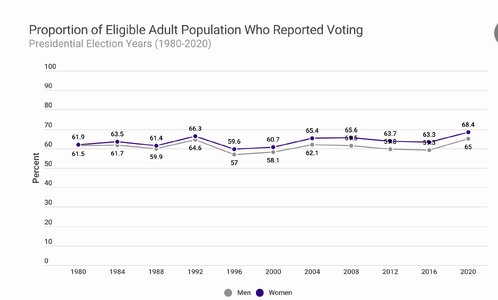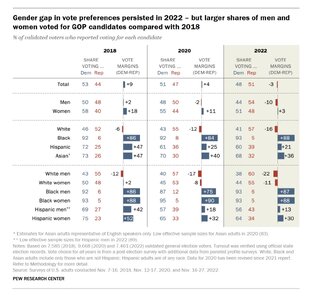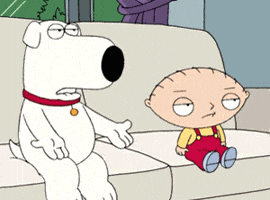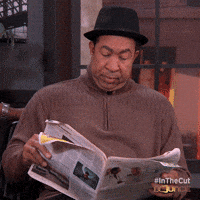Seriously? 2008? In modern politics and polling that is ancient history. The media is nothing like it was then nor the malignancy of the Magats.I'm going to need to see the study. Here is one of the studies that folks weren't able to find.
"Here, we present evidence that prediction markets outperform polls for longer
horizons. .. The market is closer to the eventual outcome 74% of the time. Further, the market significantly outperforms
the polls in every election when forecasting more than 100 days in advance. "
Navigation
Install the app
How to install the app on iOS
Follow along with the video below to see how to install our site as a web app on your home screen.
Note: This feature may not be available in some browsers.
More options
You are using an out of date browser. It may not display this or other websites correctly.
You should upgrade or use an alternative browser.
You should upgrade or use an alternative browser.
2024 Pre-Election Political Polls | POLL - Trump would have had 7 point lead over Biden
- Thread starter nycfan
- Start date
- Replies: 5K
- Views: 203K
- Politics
gtyellowjacket
Inconceivable Member
- Messages
- 3,013
And that's why I didn't post any studies. There was never going to an be applicable study. People don't want to hear anything if they already disagree with it. I've played this game before.Seriously? 2008? In modern politics and polling that is ancient history. The media is nothing like it was then nor the malignancy of the Magats.
Do you see that little line at the top of your computer screen that says www .zzlpolitics.com/...? Go ahead and click on that twice really fast. Then type in www.google.com. You'll see this amazing tool come up on your computer screen and in the middle there'll be a place where you can type any question you have. Go ahead and type in accuracy of polling versus prediction markets and you can click on any of those links to your heart's content to determine if you think prediction markets are better than polling data.
If you have any trouble, reach out to your granddaughter.
Last edited:
- Messages
- 40,717
As it happens, I was looking at gender demographics in US presidential elections early this morning during breakfast. Turnout of registered women voters has pretty consistently been 3-4 points higher form women than men this decade — i.e. when 70% of female registered voters vote, about 66-67% of male registered voters vote.Back to turnout. So far, turnout looks good for liberals, I think. Here are the three points that stand out to me:
1. Turnout among black voters is so far at 12.5%; among whites it's 14.5%. In 2020, white voters turned out 11 points more than black voters (79-68). I don't think it's useful to compare early returns with early returns in 2020 because of the pandemic.
2. Turnout among women and men are running about equal, with women slightly in the lead. In 2020, women turned out about 3 points better than men. But there are so many more female voters. In 2020, women cast 50.1% of the votes against 42% of men (with 8% "undesignated" -- I'm going to guess that a big chunk of undesignated are trans and God I hope they are voting for Kamala). IOW, it's better in NC to be winning with women.
3. Turnout among Dems so far is slightly better than Pubs. Since there are more registered Dems than Pubs, that leads to a 20K lead for Dems at the moment. And independents are turning out considerably worse than either (only 10%).
That said, we don't know how many of those Dems are votes for Trump. My guess is that if Trump is doing better with black voters, he's doing better with Dem voters than in the past. And of course indies are still the biggest overall group.
So from a top-level perspective, it seems to me that early voting is favoring Kamala ever so slightly -- but it's also true that these numbers are pretty close to meaningless. I've said they were completely meaningless; with over 13% turnout already, they now have a non-zero salience in my view. But not very much salience.
FTR, women represent about 50.5% of the US population.
Voters - Gender Differences in Voter Registration and Turnout

I suspect that the movement in this turnout plot a few tenths of a point up or down could be the difference in the election, but just theorizing.
- Messages
- 40,717


Voting patterns in the 2022 elections
American Trends Panel: Pew Research Center’s online probability survey panel, which consists of more than 12,000 adults who take two to three surveys each
Clearly, race and age are also key factors as I’m ashamed to say that a majority of White women still support the MAGA GOP. But one key to the data above is the women have been turning out at a lower proportionate rate in off-year elections than presidential years, so the electorate is still majority women but closer to their population percentages in off-years.
superrific
Master of the ZZLverse
- Messages
- 12,230
LOL. As if the jacket would read the study.
The jacket's article, which he almost surely did not read, 1) relies on IEM, which doesn't exist any more; and 2) is comparing IEM to "raw poll data", which is a bullshit comparison.
As I said before, the early days of prediction markets were pretty good when they were unknown. As they have gotten bigger, they have gotten worse. Crypto has also badly distorted our capital markets, by putting (in some cases) a lot of money in the hands of people whose only investment thesis is "line goes up." Crypto has made millionaires out of stupid people, who then use their crypto to bet on stupidity.
The jacket's article, which he almost surely did not read, 1) relies on IEM, which doesn't exist any more; and 2) is comparing IEM to "raw poll data", which is a bullshit comparison.
As I said before, the early days of prediction markets were pretty good when they were unknown. As they have gotten bigger, they have gotten worse. Crypto has also badly distorted our capital markets, by putting (in some cases) a lot of money in the hands of people whose only investment thesis is "line goes up." Crypto has made millionaires out of stupid people, who then use their crypto to bet on stupidity.
superrific
Master of the ZZLverse
- Messages
- 12,230
And also that Dobbs hadn't happened yet in 2020 or 2018. 2022 was supposed to be a red wave year so I wouldn't read too much into those numbers.

Voting patterns in the 2022 elections
American Trends Panel: Pew Research Center’s online probability survey panel, which consists of more than 12,000 adults who take two to three surveys eachwww.pewresearch.org
Clearly, race and age are also key factors as I’m ashamed to say that a majority of White women still support the MAGA GOP. But one key to the data above is the women have been turning out at a lower proportionate rate in off-year elections than presidential years, so the electorate is still majority women but closer to their population percentages in off-years.
Such an idiotic headline on that graphic. Gee, I wonder why women and men voted more GOP in an election that the GOP won by a few seats instead of losing by like 40!!
I don't know why you should be ashamed. You can only control you. I mean, look at me -- a white Gen X dude, in Trump's best demo. I no longer live in a big city. I have a goatee, though not a super long one. Looking at me, without talking to me, it would be rational to assume I was probably MAGA. 75% chance at least. That doesn't embarrass me. I can't do anything about it.
TarHeelGrad
Exceptional Member
- Messages
- 202
- Messages
- 2,179
See, that wasn't so hard now, was it?I'm going to need to see the study. Here is one of the studies that folks weren't able to find.
superrific
Master of the ZZLverse
- Messages
- 12,230
It was, because he had to ignore that the article doesn't say what he wants it to say.See, that wasn't so hard now, was it?
- Messages
- 2,179
I always just type whatever I'm looking for in the address bar..Do you see that little line at the top of your computer screen that says www .zzlpolitics.com/...? Go ahead and click on that twice really fast. Then type in www.google.com. You'll see this amazing tool come up on your computer screen and in the middle there'll be a place where you can type any question you have.
donbosco
Legend of ZZL
- Messages
- 6,828

Harris v Trump: 2024 presidential election prediction model
Our prediction model shows the chances Kamala Harris and Donald Trump have of winning the contest to be America's next president
Donald Trump takes the lead, as polls swing away from Kamala Harris
Article is paywalled but you can see enough.
That's what I do as well. Seemed pointless to tell him anything, though.I always just type whatever I'm looking for in the address bar..
tallheel95
Distinguished Member
- Messages
- 285
Womp womp
Harris v Trump: 2024 presidential election prediction model
Our prediction model shows the chances Kamala Harris and Donald Trump have of winning the contest to be America's next presidentwww.economist.com
Donald Trump takes the lead, as polls swing away from Kamala Harris
Article is paywalled but you can see enough.
theel4life
Inconceivable Member
- Messages
- 2,715

Harris v Trump: 2024 presidential election prediction model
Our prediction model shows the chances Kamala Harris and Donald Trump have of winning the contest to be America's next presidentwww.economist.com
Donald Trump takes the lead, as polls swing away from Kamala Harris
Article is paywalled but you can see enough.

CallMeTyler
Esteemed Member
- Messages
- 614
So basically they adjusted based on polls. Okie dokie.
Harris v Trump: 2024 presidential election prediction model
Our prediction model shows the chances Kamala Harris and Donald Trump have of winning the contest to be America's next presidentwww.economist.com
Donald Trump takes the lead, as polls swing away from Kamala Harris
Article is paywalled but you can see enough.
lawtig02
Legend of ZZL
- Messages
- 5,845
superrific
Master of the ZZLverse
- Messages
- 12,230
Eh. 538 has him at 52%. I wouldn't sweat it. These 8-10% movements don't mean anything. The race is going to be decided by turnout and polling error (technically polling error doesn't cause anything but I think you know what I mean).
Harris v Trump: 2024 presidential election prediction model
Our prediction model shows the chances Kamala Harris and Donald Trump have of winning the contest to be America's next presidentwww.economist.com
Donald Trump takes the lead, as polls swing away from Kamala Harris
Article is paywalled but you can see enough.
It also matters what polls are being used and how. I read on 538 that if they filtered out the partisan or red wave polls, it wouldn't make much difference . . . except in PA, where it would be the difference between Harris +0.1% and Harris 0.9%. Since the race is largely PA at this point, it seems to me that it would make a considerable difference in terms of the current forecast. Whether it would make any difference at the end, who knows.
aGDevil2k
Inconceivable Member
- Messages
- 4,683
Hopefully this rings true!
Dowd knows his shit...and it's not like he's a liberal with blue glasses
It’s Yellowjacket.You've spent more time replying to requests asking for a single link than just actually providing one. Why even bother making a claim without showing your work?
I mean we get the laziness and lack of transparency, but still, put forth a little effort.
Constant contrarianism means one does not provide supporting links or atrticles.
Share:


